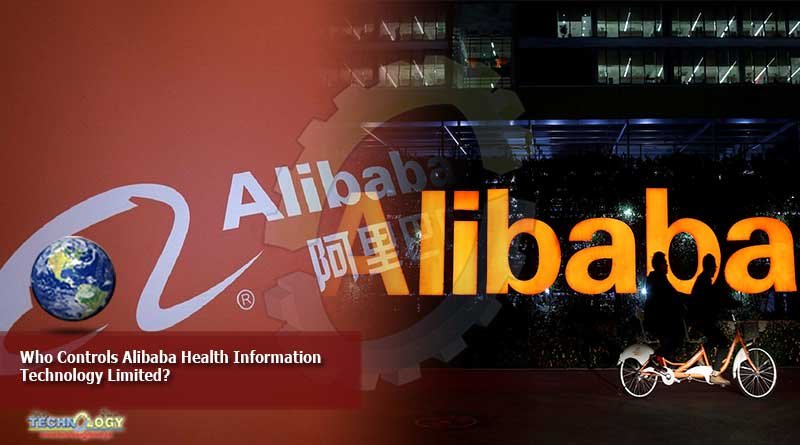If you want to know who really controls Alibaba Health Information Technology Limited, then you’ll have to look at the makeup of its share registry.

If you want to know who really controls Alibaba Health Information Technology Limited (HKG:241), then you’ll have to look at the makeup of its share registry. Generally speaking, as a company grows, institutions will increase their ownership. Conversely, insiders often decrease their ownership over time. Warren Buffett said that he likes “a business with enduring competitive advantages that is run by able and owner-oriented people.” So it’s nice to see some insider ownership, because it may suggest that management is owner-oriented.
Alibaba Health Information Technology is a pretty big company. It has a market capitalization of HK$298b. Normally institutions would own a significant portion of a company this size. Taking a look at our data on the ownership groups (below), it seems that institutions own shares in the company. Let’s take a closer look to see what the different types of shareholders can tell us about Alibaba Health Information Technology.
What Does The Institutional Ownership Tell Us About Alibaba Health Information Technology?
Institutions typically measure themselves against a benchmark when reporting to their own investors, so they often become more enthusiastic about a stock once it’s included in a major index. We would expect most companies to have some institutions on the register, especially if they are growing.
Alibaba Health Information Technology already has institutions on the share registry. Indeed, they own a respectable stake in the company. This can indicate that the company has a certain degree of credibility in the investment community. However, it is best to be wary of relying on the supposed validation that comes with institutional investors. They too, get it wrong sometimes. When multiple institutions own a stock, there’s always a risk that they are in a ‘crowded trade’. When such a trade goes wrong, multiple parties may compete to sell stock fast. This risk is higher in a company without a history of growth. You can see Alibaba Health Information Technology’s historic earnings and revenue below, but keep in mind there’s always more to the story.
Hedge funds don’t have many shares in Alibaba Health Information Technology. Looking at our data, we can see that the largest shareholder is Alibaba Group Holding Limited with 57% of shares outstanding. This implies that they have majority interest control of the future of the company. In comparison, the second and third largest shareholders hold about 8.0% and 5.8% of the stock.
While studying institutional ownership for a company can add value to your research, it is also a good practice to research analyst recommendations to get a deeper understand of a stock’s expected performance. There are plenty of analysts covering the stock, so it might be worth seeing what they are forecasting, too.
Insider Ownership Of Alibaba Health Information Technology
While the precise definition of an insider can be subjective, almost everyone considers board members to be insiders. Management ultimately answers to the board. However, it is not uncommon for managers to be executive board members, especially if they are a founder or the CEO.
I generally consider insider ownership to be a good thing. However, on some occasions it makes it more difficult for other shareholders to hold the board accountable for decisions.
Shareholders would probably be interested to learn that insiders own shares in Alibaba Health Information Technology Limited. Insiders own HK$17b worth of shares (at current prices). I sometimes take an interest in whether they have been buying or selling.
General Public Ownership
With a 24% ownership, the general public have some degree of sway over Alibaba Health Information Technology. While this group can’t necessarily call the shots, it can certainly have a real influence on how the company is run.
Private Equity Ownership
With a stake of 8.0%, private equity firms could influence the Alibaba Health Technology board. Sometimes we see private equity stick around for the long term, but generally speaking they have a shorter investment horizon and — as the name suggests — don’t invest in public companies much. After some time they may look to sell and redeploy capital elsewhere.
Public Company Ownership
We can see that public companies hold 57% of the Alibaba Health Technology shares on issue. This may be a strategic interest and the two companies may have related business interests. It could be that they have de-merged. This holding is probably worth investigating further.
Next Steps:
It’s always worth thinking about the different groups who own shares in a company. But to understand Alibaba better, we need to consider many other factors. To that end, you should be aware of the 2 warning signs we’ve spotted with Alibaba Health Information Technology .
Ultimately the future is most important. You can access this free report on analyst forecasts for the company.
When trading Alibaba Health Information or any other investment, use the platform considered by many to be the Professional’s Gateway to the Worlds Market, Interactive Brokers. You get the lowest-cost* trading on stocks, options, futures, forex, bonds and funds worldwide from a single integrated account.
Originally published at simply wall
